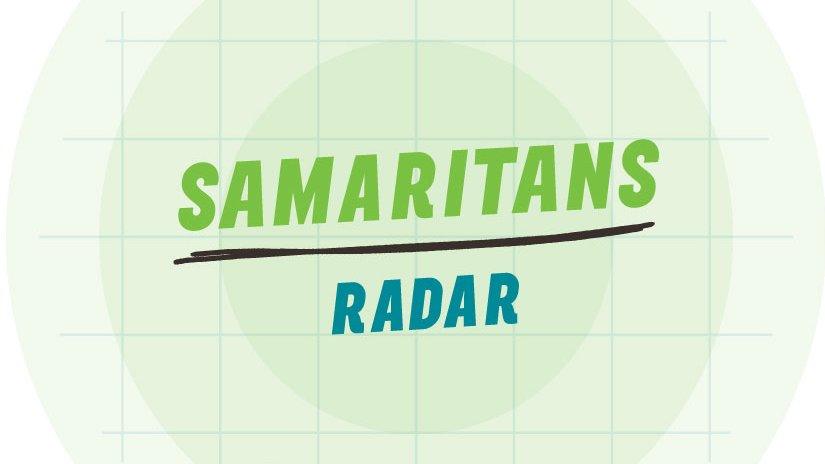Samaritans app monitors Twitter feeds for suicide warnings
- Published
Rory Cellan-Jones shows how the new Samaritan Radar app works
The Samaritans charity has launched a new app which will notify Twitter users if people they follow on the site appear to be suicidal.
Samaritans Radar uses an algorithm to identify key words and phrases which indicate distress.
They include "tired of being alone", "hate myself", "depressed", "help me" and "need someone to talk to."
Users who have signed up for the scheme will receive an email alert if someone they follow tweets these statements.
The app asks whether the tweets are cause for concern.
However it does not yet identify sarcasm, according to the website, external.
The charity says it will not get involved directly unless requested.
'not private'
Joe Ferns, executive director of policy, research and development at Samaritans, told the BBC the app was not designed to be a furtive tracking tool.
"Radar is only picking up tweets that are public, giving you an opportunity to see tweets that you would have seen anyway," he said.
"But imagine that a friend had posted something in the early hours of the morning, you're on the way to work or college and your Twitter feed is full of messages that are arguably less important - Samaritans Radar gives you the opportunity to see that tweet again and have it highlighted to you.
"It's not looking over your shoulder, it's not looking anything that's private, it's just giving you the opportunity to see something and act on it."
Samaritans Radar was created by digital agency Jam and uses Twitter's API. It is primarily aimed at 18-35 year olds.
"They are 'digital natives' - growing up using new technology and the first generation to grow up with computers in their home," said Patricia Cartes, global head of trust and safety outreach at Twitter.
"They are the most active age group across social platforms and spend an average of just over three hours daily on social networks."
Emma suffered from undiagnosed depression as a teenager
Samaritans said it was looking at extending the service to other social media networks in the future.

Analysis: Rory Cellan-Jones, technology correspondent
Samaritans Radar is aimed in particular at a generation which lives its life online - and sometimes finds it easier to express its deepest hopes and fears in a tweet rather than face to face.
The app has some smart technology which will learn from its users to distinguish phrases that are really indicative of suicidal tendencies.
Samaritans is aware that there may be a "creepy" factor, with users worried that someone is looking over their shoulder as they and their friends tweet.
But the charity says it needs to be where people are in the modern digital world - and it believes helping people help each other could save lives."
- Published29 October 2014

- Published22 October 2014

- Published13 October 2014

- Published22 June 2012
